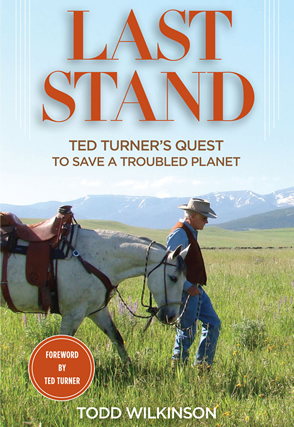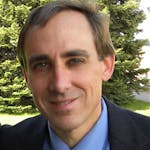Try to imagine today’s world without the UN in it. Ted Turner can’t. And the reason is that he doesn’t believe modern civilization as we know it would still exist in the UN’s absence. Seven years ago, I began a series of intense, ongoing conversations with Turner and a number of his problem-solving friends about what makes this enigmatic American “eco-capitalist-humanitarian” tick.

My new book, “Last Stand: Ted Turner’s Quest to Save a Troubled Planet,” serves in part as Turner’s dramatic and forceful argument for why the UN matters in the 21st century —and why it is irreplaceable. Rest assured, “Last Stand” by design is not another wonkish global policy position paper.
“Last Stand” tracks Turner’s profound evolution in thinking from once being a youthful admirer of Ayn Rand to his ardent conviction that the world’s wealthiest have a moral obligation to give back to society. As Ted says in the book, most of the challenges facing humanity and the natural world — population, social justice issues, climate change, the biodiversity crisis and even the nuclear threat — are at their core related to poverty, inequality and environmental degradation.
Many brilliant thinkers including Paul Hawken, Jeffrey Sachs and Lester Brown have written eloquently about the triple bottom line, but Turner, the green businessman, literally practices it at scale.
Embracing true sustainability, the only kind that is durable, he knows from personal experience that the economy versus ecology argument is really a false dichotomy.
In “Last Stand,” Turner provides plenty of ammunition for the UN faithful around the world to convince others of its vital mission. The UN brings stability and a superstructure of global cooperation by which real prosperity and civil dialogue can proceed. Were it not for the UN, Turner is convinced that World War III would have already been fought and we as a species would have lost.
There are other stories in the book too, including one involving the motivation behind his epic land-buying spree. As the second largest private property owner in the U.S., he has amassed a herd of 55,000 bison, stewarding these iconic creatures as “ecological tools” for healing degraded rangelands. He is also using his lands as “arks” for protecting imperiled species, from grizzly bears and wolves in North America to guanacos in Argentina.
Most readers here know that Turner and former U.S. Senator Sam Nunn of Georgia created the Nuclear Threat Initiative. Along with prominent allies on both sides of the political aisle, they are addressing the dire concerns of nuclear proliferation and the possibility of nuclear materials falling into the hands of terrorists.
Before he died, the late Richard Holbrooke told me that with Turner’s historic gift of $1 billion to create the UN Foundation, the world desperately needed an outspoken UN champion, a respected job-creating entrepreneur who had the resolve, courage and credibility to stand up for the UN.
I guess you could call “Last Stand” a rallying cry brought forth by a “global citizen” who is proud to call himself a peace-loving internationalist. “Ted has set a new standard for what a single individual can do to address the most challenging problems threatening our survival,” Nobel Laureate Mikhail Gorbachev told me. “He is tenacious. And he is helping to make a difference — in the nick of time.”
Todd Wilkinson is the author of “Last Stand.”



 View All Blog Posts
View All Blog Posts